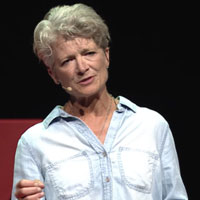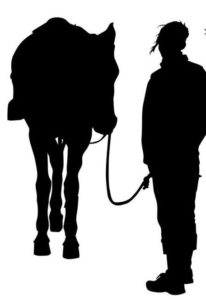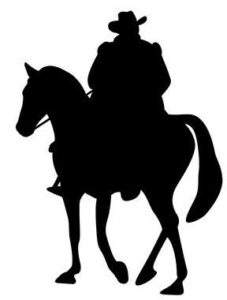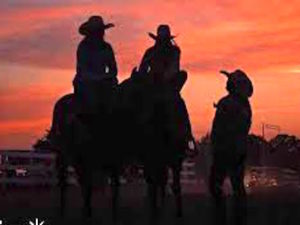 Editor’s Note: We hear this week from Nancy Lowery of Calgary, Alberta. Lowery has been blogging about her Leadership Learning through Horsemanship Experiences for more than a decade. A recent interview series by Lowery explored what Calgary leaders have learned through their relationships with horses.
Editor’s Note: We hear this week from Nancy Lowery of Calgary, Alberta. Lowery has been blogging about her Leadership Learning through Horsemanship Experiences for more than a decade. A recent interview series by Lowery explored what Calgary leaders have learned through their relationships with horses.
This guest post addresses some of what we will explore at Stepping Up, a supplemental day of workshops and discussion at the Best Horse Practices Summit.
Lowery writes:
Her voice shook. She began with a disclaimer: what she was about to say might not be true. It was something her friend had told her after attending a clinic. Still, it had deeply shaken her friend and had taken eight months for her to share the  experience.
experience.
It’s one thing to have a man approach you at a bar or a campfire, it is another thing entirely when it happens while you’re alone, in a guest room of the clinician’s host.
The clinician was some 30 years older. She froze at his drunken attempts to seduce her. She had no idea what to do. Fortunately, he was not so drunk to realize his advances were unwanted. He stumbled out of the room.
 As I listened to my young friend tell the story, I managed to say: “I’m disappointed, but not surprised.” When someone we’ve placed on a pedestal reveals himself as troublingly flawed, the fall is ours, not theirs. We are the ones who are offended, hurt, and disturbed.
As I listened to my young friend tell the story, I managed to say: “I’m disappointed, but not surprised.” When someone we’ve placed on a pedestal reveals himself as troublingly flawed, the fall is ours, not theirs. We are the ones who are offended, hurt, and disturbed.
But this is not an uncommon phenomenon in the world of horsemanship clinics. Have women enabled the dysfunction through our silence and tolerance? Can we, as female students, do better and demand better?
People openly talk of womanizers and Buckle Bunnies (the young women who swoon over cowboys at rodeos). As at rodeos, the clinic circuit can also create the Perfect Storm. It can be a setting where women – eager to improve their horsemanship – hope to be noticed by the male leader. Often, they end up with the wrong type of attention.
#MeToo isn’t about being politically correct. It’s about all of us recognizing bad behavior as bad behavior. You’d call it out if you saw someone behaving badly with a horse, wouldn’t you? Then why do we women struggle to call it out when it happens between humans?
Despite all the recent events and media coverage, women are not always the best supporters of women.
Does jealousy, cognitive dissonance, ego, or simple denial get in the way?
We need to get better. It’s about believing your friend when she says it was unwanted. It’s about having the ability, the skills, and self-assurance to avoid enabling men when they behave badly.
Clinicians: I know it can be difficult to be humble when those around you are in awe. You tell students: a horse has no ego. What about you? Can we make sure the words apply equally to the one delivering them? Can you offer the same dignity to your students as you do to the horses?
My friend didn’t immediately believe her friend’s story: The horseman is famous and married. She’s not even a great rider! Why would he seduce her?
No wonder it has taken so long for women to come forward. How many times have you or one of your friends wanted to share an experience, but feared being judged, discredited, or alienated?
The #MeToo movement began when women stopped placing more faith, more value, more credence in an idol than a friend. It’s when we began to speak truths and finally listen.
Really? Seriously? Get a grip. My horse world is the one place that I could count on to not hear about this crap! You are now trying to politicize the equine world? Get over yourself!
It’s personal responsibility. That’s what being an equestrian is all about. This happens in life. Everywhere! To everyone. Your subtle little story was not enlightening or encouraging. It’s a wain attempt at a jab at our current political climate.
Get rid of this crap here. I, and I believe, the majority of folks in the equine world DO NOT agree with this garbage.
Thanks for your opinion. Research shows that women have an unconscious bias against women in male-dominated environments. In other words, women tend not to support women. That’s not political.
If we can call attention to what many consider to be a cultural dysfunction, I’d think it’d be a step in the right direction. We disagree with your assessment that this is a ‘subtle, little story’ with political motivations. The author is Canadian, for starters, and NickerNews has no ulterior motives. In fact, we have for the past decade, featured more men than women in our pages. Maddy Butcher, publisher
I think you prove her point beautifully.
Thank you for this much needed article! These dynamics between men and women, women and women, men and men, are universal and can only change by applying our awareness, concern, and courage.
Great article. Very well written and perfect delivery of information.
Idol worship is a powerful thing. I had a friend who expected me to like a famous trainer. When I told her how shocked I was after auditing his clinic for a day and observing his condescending attitude toward a woman, camaraderie with a man who in my understand was doing things to his horse that weren’t good, and his whining and complaining about how he wasn’t worshipped adequately at a clinic in Europe, our former jovial relationship turned sour. She would comment on me “ruining a perfectly good horse”, with my implied lack of skills, etc. while professional trainers would give me nice feedback. Her face would go sour when she heard anyone complement me. Finally I just started keeping my distance from her. Imagine if I had been molested by this trainer and gone to her for help! Yes. Unfortunately women tend to be so internally oppressed, that they will not believe any information that contradicts their established belief of a man who has status. Women will not be believed until we drop the insanity of always believing a man’s word more. The comment about lack of riding skills making the victim’s claims not believable shows exactly the kind of lack of logic and blind adherence that is at the root of this problem.
I am the mother of two young daughters who are “horse crazy.” A few years ago they got into riding and training- the man who was their “trainer” seemed to have their best interests at heart- but as time went on it became clear that he was using them to get his barn chores done for free, and had an unnatural interest in them- using access to the horses was a powerful tool and we were fortunate to see the signs of his control before any permanent damage was done. The bond between young women and horses they adore has much power- and there are many who abuse that. Be careful, and when you see something, say something.
“You’d call it out if you saw someone behaving badly with a horse, wouldn’t you?” Sadly, women in particular are trained from an early age not to speak up or interfere even when animals are abused, less the abusive (or other unwanted) attention be turned on them. Some years ago I watched in horror as a nationally A rated male jumper trainer beat the crap out of a horse in a back warm up arena after an event, for coming in second. When I mentioned it to other female competitors I was friendly with, they all knew about it and just shrugged. It was before the days of camera cell phones. Maybe that would have made a difference, but I doubt it. Thanks for the discussion.
Seemingly brave and forward, yet, no one is mentioning names of these clinicians who are behaving this way!
What is stopping yo writers, publishers, and commenters, from actually saying the names of these offenders?
It would be quite helpful for the rest of the population, the readers, to know who to avoid.
I suppose there is valid fear of retaliation…?
Hey K Mac – just checking out some of the comments, no fear of retaliation. My young friend was delighted I had written about it and was going to share it with the young woman who is a part of the story.
If I get the chance to meet the individual I won’t likely let it pass, but I’m not interested in trashing someone in a public forum on hearsay. I was disappointed but not surprised is indeed the truth. The worst part of the MeToo movement has been some of the public slaying that has happened. That is not my intention but rather to make sure we make the conversation relevant. Think we are ready.
I was sad to read what had happened, though I know it’s all too common , I think you hit the nail on the head when you said ” it is important to believe” so much of this goes on we all know that yet when someone takes the courage to speak up, they are doubted? I know many of the woman I have worked with who have been through similar or much worst experiences feel isolated, guilty, and alone. Like they made the mistake? or that they were the perpetrator? when we listen, accept, and believe we give them a foundation from which to heal and to move forward again.
As a middle age guy working in this very field, primarily with women, I know I walk a fine line, especially with all my joking and teasing. It’s very easy when your working with horses, sharing a passion, seeking a connection, and offering help ( sometimes in huge ways) for people to develop feelings, but I draw my lines in the sand and try to have very clear boundaries and then stick to them. It’s a responsibility I take very seriously.
I think our problem runs so much deeper than how we present ourselves, or if we want to be noticed? I wish that could/ should be be a non issue. but ego never leaves us alone, how we feed it becomes important. I think we need to hold media more accountable, when will we take a good look at our movies, video games, music, social media feeds and start holding them accountable for front loading our perceptions and ideals for normal and acceptable. what we are allowing to be set as a standard for behaviour, and thought.
I think many of or problems begin there, yet they remain for the most part unaddressed.